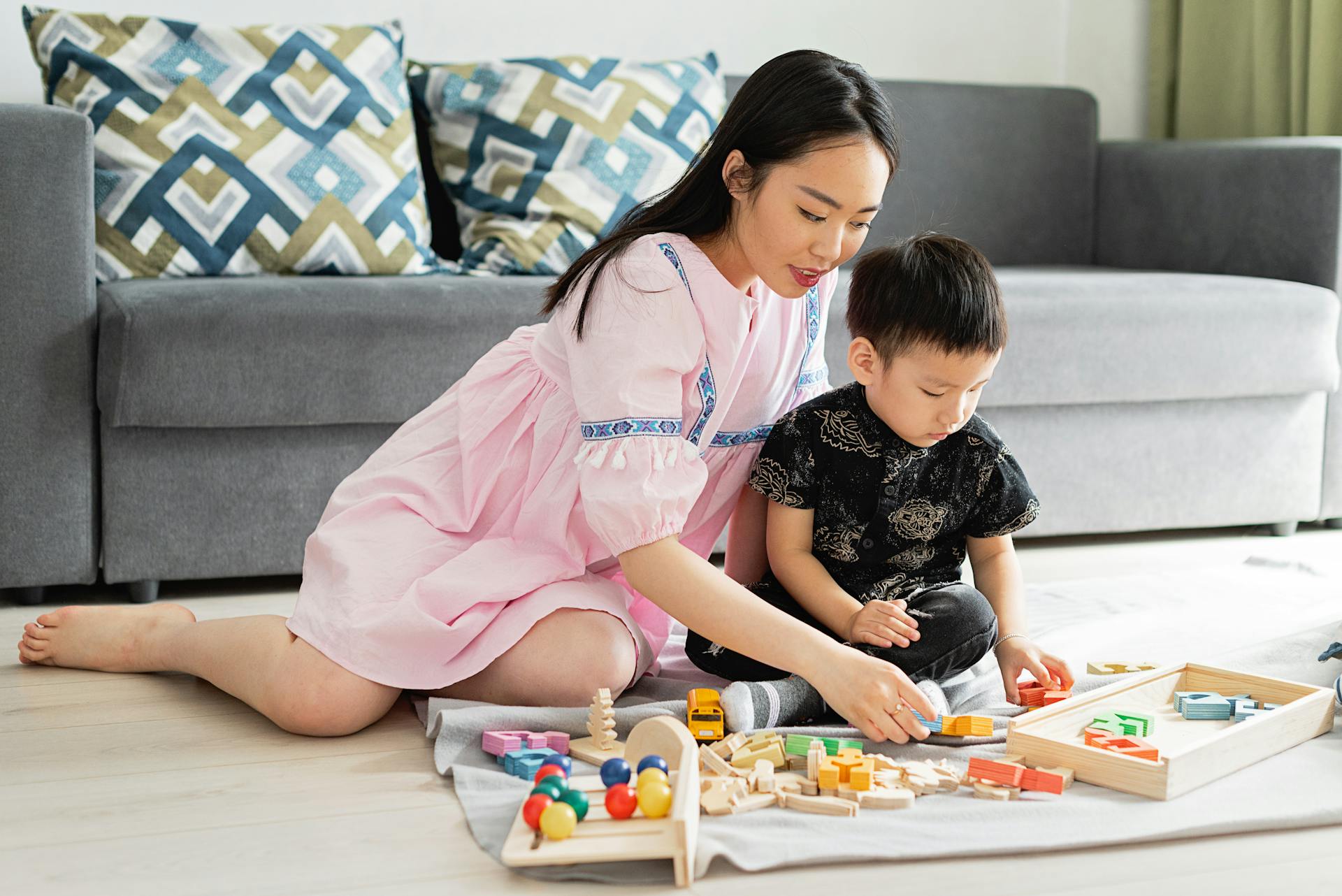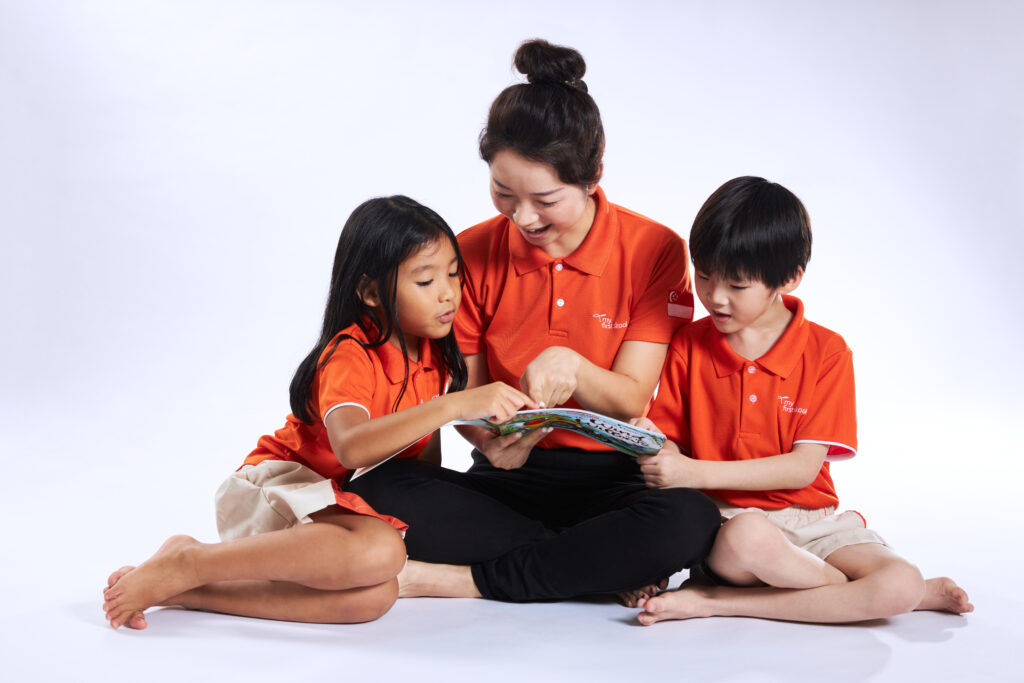Reggio Emilia Approach vs Montessori in Singapore (2025)


When it comes to choosing a preschool in Singapore, parents are often faced with a sea of options—each promising to give their child the best start in life.
Among the most respected and talked-about educational approaches are Montessori and Reggio Emilia. Both offer child-centred, play-based learning environments, but their philosophies, classroom dynamics, and even teacher roles can differ significantly.
So, how do you choose between them?
The debate of Reggio Emilia vs Montessori highlights the distinctions in grouping, teacher roles, curriculum, and classroom design, helping parents and educators understand which might better suit their child’s learning style. More importantly, which one aligns best with your child’s needs, personality, and learning style?
In this article, we’ll walk you through the key similarities and differences between these two influential approaches, explore how they are applied in Singapore’s preschool landscape, and offer tips to help you make an informed decision.
Whether you’re leaning towards the structure of Montessori or the creativity of Reggio Emilia, or perhaps a blended, local alternative, this guide is here to help you find the right fit for your little one.
Developed by Dr Maria Montessori over a century ago, the Montessori method is a structured, child-led approach to learning. Classrooms are carefully prepared to encourage independence, with hands-on materials designed to support exploration in areas such as language, mathematics, and practical life.
In a Montessori setting, children choose their own activities and work at their own pace. Teachers act more like guides than instructors, gently observing and stepping in only when needed. The goal? To nurture confident, self-directed learners who take joy in discovery.
Originating in the town of Reggio Emilia, Italy, this approach views children as capable, curious, and full of potential. It’s less about a fixed curriculum and more about following the child’s interests. Learning is project-based, collaborative, and often sparked by real-world questions children ask, where children engage in purposeful play and exploration.
In Reggio Emilia-inspired classrooms, the environment is thoughtfully designed to invite exploration, creativity, and social interaction. Teachers observe children closely and work with them to co-construct knowledge, often documenting their learning journeys through photos, quotes, and portfolios.
At first glance, Montessori and Reggio Emilia might seem worlds apart in their teaching methods. But dig a little deeper, and you’ll find that these two respected approaches share several key principles, especially when it comes to how children learn best:
Both Montessori and Reggio Emilia put the child at the heart of the learning experience. In these classrooms, children are not passive recipients of information. Instead, they are active participants—curious explorers who construct their own understanding of the world.
In both approaches, children are given the autonomy to make decisions about their learning. Whether it’s choosing an activity in a Montessori classroom or initiating a project in a Reggio-inspired space, children are encouraged to follow their interests and develop a sense of ownership.
Montessori and Reggio Emilia educators pay close attention to the physical environment and classroom setup. Both believe the environment is more than just a backdrop—it’s a key part of how children learn.
Rather than directing the lesson, teachers in both approaches act as facilitators in the educational process. They observe, listen closely, and step in to support learning when necessary. In both Reggio Emilia and Montessori classrooms, the adult’s role is to support—not steer—the child’s learning journey.

While Montessori and Reggio Emilia share a child-centric philosophy, their methods differ significantly in fostering creativity and self-expression among children. From the materials used to how lessons unfold, here’s how each approach stands apart.
In Reggio Emilia, learning often happens through long-term, collaborative projects that emerge from children’s interests.
For example, a child’s question about “Why do leaves fall?” might evolve into a weeks-long exploration involving books, art, science, and nature walks.
There’s no fixed curriculum—learning flows organically based on what excites the children, embodying the principles of an emergent curriculum.
Classrooms are designed to inspire exploration. You’ll often see open-ended materials like clay, mirrors, fabrics, or natural elements arranged in beautiful, inviting ways. Every corner of the space encourages communication, creativity, and discovery.
Reggio educators engage in collaborative learning alongside children to explore ideas, often documenting their conversations, creations, and observations.
These documentations are then used to reflect, revisit, and extend the learning journey. Teachers guide, but also learn and adapt with the children.
Known as the “Hundred Languages of Children,” the Reggio Emilia approach encourages creative expression by allowing children to express themselves in many forms—art, music, drama, drawing, storytelling, and more.
Creativity is not a side activity—it’s central to learning.
In a Montessori classroom, self-guided learning is emphasised as children are free to choose their activities, but from a curated set of hands-on learning materials designed to teach specific skills.
They work independently or in small groups, at their own pace, with minimal interruption. Lessons are typically one-on-one or small groups, based on readiness rather than age.
Everything in the Montessori environment is intentionally designed to create a carefully prepared environment—shelves are at a child’s height, and materials are ordered logically from simple to complex.
Items like sandpaper letters, pink towers, or knobbed cylinders are not just toys—they are learning tools designed to support developmental stages.
Montessori teachers step back and observe rather than directly instruct, facilitating a collaborative and child-centred learning process.
They intervene only when a child is ready for a new concept, and lessons are brief, clear, and precise. The goal is to encourage self-correction and independence, not adult approval or reward.
Beyond academics, Montessori places strong emphasis on practical skills—pouring water, tying shoelaces, or washing hands.
These tasks build coordination, responsibility, and confidence, especially valuable for young learners developing independence in Singapore’s fast-paced society.
While Montessori and Reggio Emilia schools originated overseas, both approaches have found a strong foothold in Singapore. However, they are often adapted to suit local culture, parental expectations, and the Ministry of Education’s early years framework.
Montessori education is relatively well-established in Singapore, with several schools offering authentic Montessori programmes. These preschools follow the classic Montessori structure—mixed-age classrooms, specialised materials, and a strong emphasis on independence.
That said, not all schools using the term “Montessori” follow the method fully. Some integrate Montessori elements within broader play-based or thematic curricula, especially to align with MOE’s Nurturing Early Learners (NEL) framework.
Reggio Emilia education is less of a fixed methodology and more of an evolving inspiration that emphasises collaborative learning and creativity. Certain schools in Singapore incorporate Reggio Emilia-inspired practices—particularly in how they set up learning environments, encourage open-ended exploration, and document children’s learning journeys.
Because Reggio Emilia doesn’t come with a prescribed curriculum, local schools often adapt its principles to fit Singapore’s bilingual context, with more structure and school readiness prep than you’d typically find in Italy. For example, Reggio-inspired schools here may blend project work with literacy and numeracy goals to prepare children for primary school.
In Singapore, parents place high value on bilingualism, academic readiness, character development, and community involvement. Preschools—whether Montessori or Reggio Emilia-inspired—are mindful of these priorities. You’ll often find:
Ultimately, both approaches are adapted to meet local expectations while staying true to their core philosophies.
The truth is, there’s no one-size-fits-all answer—especially in Singapore, where children are born into a unique blend of Eastern values and global influences.
Both Montessori and Reggio Emilia have strong track records of nurturing confident, curious, and capable learners. But choosing between them really comes down to what fits your child and family best.
| Choose Montessori if: | Choose Reggio Emilia if: |
| Your child thrives on structure, order, and calm environments.You value academic readiness delivered through hands-on exploration. You want your child to develop independence and self-discipline from an early age.You prefer a clearly defined, methodical approach to learning. | Your child is naturally expressive, social, and full of questions.You value creativity, collaboration, and child-led inquiry.You’re excited by the idea of learning that flows from your child’s interests.You want a warm, dynamic environment that evolves with your child. |
Still weighing the differences between Montessori and Reggio Emilia?
While both offer compelling philosophies, some parents in Singapore may find that a localised preschool model better meets their needs, especially one that supports bilingualism, academic readiness, and holistic child development in a culturally relevant context.
At My First Skool, we understand the needs of Singapore parents, offering a nurturing, child-led learning environment grounded in structure, creativity, and school readiness.
Certified by ECDA and aligned with Singapore’s Nurturing Early Learners framework, our approach supports children’s natural curiosity while preparing them for lifelong learning. These approaches have significantly influenced early childhood education and continue to inspire schools, educators, and parents globally to adopt progressive teaching strategies.
Our preschool curriculum is designed to spark curiosity, encourage independence, and support every child’s unique growth journey. My First Skool provides a holistic foundation that prepares your child for both primary school and life beyond.

Every year, over 26,000 families all across Singapore see their children benefit from our relationship-based curriculum – one that emphasises forging strong bonds between children, teachers and parents.
Find a centre near you or take a virtual tour to explore our learning environments and learn how your child can thrive.